What if there was a way for every product your brand sells to be bought by every visitor? In other words, what if every time a visitor comes to your website, they trust you so much that they buy every product you recommend and/or sell.
Unfortunately, there is no proven method to make this a reality. However, luckily, there is something that can help. It’s called being an authority on a subject. It’s not about being an authority on every subject, but about being an authority on one specific subject. No one can be an authority on everything.
If you are an authority on a subject, you gain the trust and confidence of your visitors and readers. People will speak highly of you and recommend you. Here’s an example:
With this tweet, Tony Conrad is broadcasting to his 20,000+ Twitter followers who he recommends for health information and product recommendation. The question is: How do you achieve this kind of authority among thousands of people?
That’s what we’ll be discussing.
In this post, we’ll break down some examples of who is an authority, why they are an authority, and how you can present yourself as an authority on your own subject.
Let’s Go Through Some Examples…
For me, there are a few people and organizations that I trust and treat as experts on a subject. I trust what they say, buy some of the products they recommend, and tell others about them. I’ll go through the list and tell you the qualities they have.
Here are some of my favorites:
Pitchfork Media
Some say that music is entirely subjective. What some think of as good music others consider awful. So, in the case of music, reviews are useless since you cannot rate something that is subjective.
I disagree with this whole notion and believe that some music is just better than other music. And when I want to read reviews and find good music, I go to Pitchfork.
The reviews and articles are well written and very deep. The website is well designed, and I find myself aligning with their musical tastes. Additionally, the authors are more knowledgeable about music than anyone I’ve read. I learn from them, expand my musical awareness, and get more out of music because of Pitchfork. For me, they are the authorities on music.
FiveThirtyEight Blog
There are hundreds of outlets and self-proclaimed “experts” who predict elections. Many tend to run off their own biases and others are just flat-out wrong. People need someone who uses polling data from multiple sources and is able to set aside all personal biases. They need an authority they can go to for election forecasting. Nate Silver fills the role.
Silver first gained public recognition when he developed a model for baseball performance. Then he accurately predicted the 2008 and 2012 U.S. presidential elections. In September 2012, he released a book entitled The Signal and the Noise: Why So Many Predictions Fail – But Some Don’t.
On election night 2012, when he accurately predicted the presidential and many congressional elections, he tweeted out a promotion of his book:
Two days later, his book was #2 on Amazon:
And it became #6 on The New York Time’s list of best sellers:
And at the time of this writing, it ranks #271 on Amazon’s list of best sellers:
As for his blog, around election day, 20% of all of The New York Times traffic included a visit to the FiveThirtyEight blog.
None of this success would have happened if Silver was a pundit. Silver has established his credibility with accurate election forecasting; and, through this, he has become an authority for election predictions.
Leo Laporte
Leo Laporte, a technology veteran and longtime radio show host, is one of the people I trust when it comes to all things technology. He is experienced, friendly, and doesn’t talk down. He openly praises and criticizes products. Off the top of his head on his show, Laporte can name software recommendations and solve complex technological problems.
Through his radio show and podcast network, he recommends various products and services. If you listen to his radio show, you’ll hear that many listeners buy only the products that he recommends. Laporte has proven himself for years on the radio and gained the trust of many people. He criticizes products when necessary because this is an important trait if you want to be viewed as an authority on a subject. We’ll be getting into this a little later.
Dr. Oz
Despite criticism from detractors, Dr. Mehmet Oz remains one of the most popular figures in the health field. Oz’s television show and books are filled with advice for maintaining optimum health.
While Dr. Oz doesn’t endorse anything, he does feature specific products on his show. Many of the products sell out at stores soon after appearing on a broadcast. Some stores even place an “As Seen on the Dr. Oz Show” sign on display shelves.
As part of being an authority for many people, Dr. Oz has coined a term “Dr. Oz Approved.” These are recipes and foods that, as the name implies, Dr. Oz approved. A quick Google search shows dozens of results and some keywords that others search for:
A Twitter search for #ozapproved brings up thousands of tweets with that very hashtag.
As you can see, Dr. Oz has positioned himself as an authority on health. Any products he recommends sell out rapidly. It’s no wonder that the show gets hundreds of product pitches every month.
Oprah
Having a television show, magazine, website, and television network means you get a lot of coverage. It’s pretty difficult for folks to miss you.
This is the amount of media exposure Oprah Winfrey gets:
- Former show host of The Oprah Winfrey Show
- Chairwoman and CEO of the Oprah Winfrey Network (OWN)
- Publisher of O, The Oprah Magazine
At the time of this writing, she has over 18.5 million Twitter followers and 8.3 million Facebook fans.
When you have this kind of reach and this kind of following, you can be an authority. And Oprah doesn’t shy away from product recommendations. Many of the books in her book club are best sellers. In addition to her book recommendations, Oprah also recommends products. Often, the products she recommends quickly become popular products. It has become such a regular occurrence, that the term “Oprah Effect” has been born. One CNBC anchor called the Oprah Effect “The Good Housekeeping Seal of Approval x10.”
The Oprah Effect even takes place outside of the business arena. It has been estimated that, when she endorsed Barack Obama in 2008, Oprah influenced one million votes in the Democratic primary. This would have been enough to put Mr. Obama over the top to win the Democratic primary.
You can see the kind of power and influence Oprah has on people. Anything she speaks about or features in one of her media outlets is immediately affected.
Consumer Reports
According to the Consumer Reports mission:
“The organization was founded in 1936 when advertising first flooded the mass media. Consumers lacked a reliable source of information they could depend on to help them distinguish hype from fact and good products from bad ones. Since then Consumer Reports has filled that vacuum with a broad range of consumer information.”
The Consumer Reports premise is solid. Unbiased experts buy products and thoroughly examine each one and rank which ones are the best. In some cases, they aim to save consumers money when they feature products that are cheaper than the more expensive ones yet just as reliable. They also work to be a consumer protection service. Here are a few examples:
The Consumer Reports magazine has around 7 million subscribers. In each issue, they test and rank products and issue safety warnings. With this kind of content, Consumer Reports positions itself as an authority. Loyal Consumer Reports subscribers will tell you: “Don’t buy before you check Consumer Reports.”
How You Can Become an Authority
As you can see, being viewed as an authority can be very beneficial for businesses. We see that it can increase sales and customer loyalty to a brand or organization. Here are some ideas to help you become an authority on a subject:
Knowledge
This is pretty obvious. You cannot be an authority if you are not an expert on a subject. People won’t trust someone who doesn’t have strong credentials.
In all your content, you need to show your knowledge of a subject. This can be done through your writing, your academic credentials, and your experience.
Finally, be sure to back up your knowledge with third party sources:
- References to studies.
- Links to other reputable articles supporting your thoughts.
- Quotes from other authoritative sources.
Have Lots of Good Content and Keep it Updated
Content stretches beyond just a blog. We are all content creators, and content can be produced in multiple forms. Videos, photos, and writing are the most shared forms of content on the web.
As I’ve said, Pitchfork is my favorite website for music news and reviews. They have a large collection of music reviews. So, if I ever want information on a newly-released or older album, I can find the review on Pitchfork.
With the Neil Patel blog, we have written lots of content on online marketing, entrepreneurship, and analytics.
When writing content, don’t hesitate to go in depth and show your knowledge. Get technical, but not to the point where you turn readers away. Readers need to know that, if they want a technical explanation for why you recommend or don’t recommend a product, they can find it easily.
Another important key in writing content is keeping it updated. Because people can access an article anytime, if it isn’t up to date, it may appear that you don’t have a good grasp on the subject.
Criticize Things That are not up to Par
If you praise every product that comes along, you’ll have no credibility. Many political pundits on cable news have a habit of sounding like a mouthpiece for a political party. Every day, they praise one party and criticize the other. To moderates and fair-minded people, they have no credibility. Anything they say is taken with a grain of salt.
Similarly, Jennifer Lopez on American Idol almost never criticized any of the contestants. This was the opposite of Simon Cowell, who spoke his mind. He became the authority and an attraction for the show. Not surprisingly, when Cowell left American Idol, the show’s ratings dropped.
Furthermore, authorities don’t hesitate to criticize products from companies they generally praise. They’re honest to their core. If they disagree with something that one of their preferred companies does, they say it. Giving, and being open to, criticism is a key trait of authorities.
Respond to Criticism
If you get popular enough, you’re going to be criticized. The key is to respond to it. If enough people see that you’re not responding to criticism, you may lose your status as an authority. It’s not about getting into arguments or always needing to have the last word, but rather about not allowing criticism to go unchecked. If criticism comes, examine it and respond to it in a timely manner.
Use Evidence
You have to be able to back up anything you say. This is especially important when making health claims. For example, in this article on coffee, everything is backed up by actual published studies. Or, if you’re going to write an unbiased view of President George W. Bush’s presidency, you should list sources that back up your claims. Or, if you’re writing about President Clinton’s economy, you should, as this article does, list your sources.
By backing up your content with sources and references, you’re making yourself more likely to be trusted and relied upon by readers and/or viewers. It’s vital to make sure that what you’re broadcasting is factual. One error, and you may lose your credibility and status. So, quickly correct yourself if someone catches an error. It’s better to correct it and acknowledge the error than it is to ignore it and hope no one else notices.
And if you don’t have evidence or don’t know the answer to something, just say, “I don’t know.” It goes a lot farther with people than making up something that can later be proven untrue.
Social Proof
Authors and movie studios like to put quotes of praise from credible and recognizable people on the cover of a book or movie. This is aimed to give the author or movie studio some social proof. If you can get social proof and well-known people to refer you, you will be another step closer to being an authority.
Create and Build
Nobody likes it when someone stands on the sidelines and criticizes but doesn’t add any value of their own. To add credibility, it helps if you can say you’ve “been there” or “been in the trenches.” ESPN hires a lot of former players and coaches as analysts because they’ve “been there” in the game and have more credibility than people who have never played or coached.
Becoming an authority is a long process. It takes years to build credibility and establish a presence in a given field. But if you dedicate yourself to becoming world-class in one subject/field, have the chops to prove it, spread your message, and enough people like you, you’ll be an authority. And that can be very powerful.
Some Action Items
Here are some actionable items you can employ to make your company an authority:
- Build an authoritative blog: Create frequent content that educates your audience in the topic that THEY are interested in. Don’t overly promote your own product or services because you’ll look less like an authority and more like a salesperson. Good examples of authoritative blogs are Help Scout, which aims to be the authority on all things “customer”. The entire Moz website is written for visitors to learn about SEO. They also sell SaaS software. Copyblogger has a blog on writing and also sells SaaS software. They add value to readers by providing actionable content while also offering their own copywriting product.
- Highlight award winning products: If you run an ecommerce website, show consumers what products are the best by linking to awards, consumer reports feedback and other sources that prove that certain products are the best.
- Answer questions: Become the Quora or Yahoo! Answers of your area and post the results on your site.
Any questions, additions, or criticisms? Put them in the comments!
About the Author: Zach Bulygo is a blogger, you can find him on Twitter here.
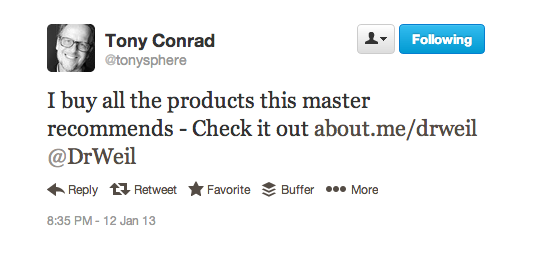
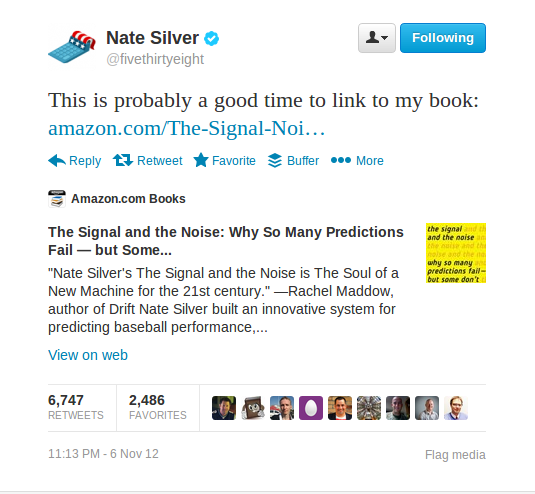
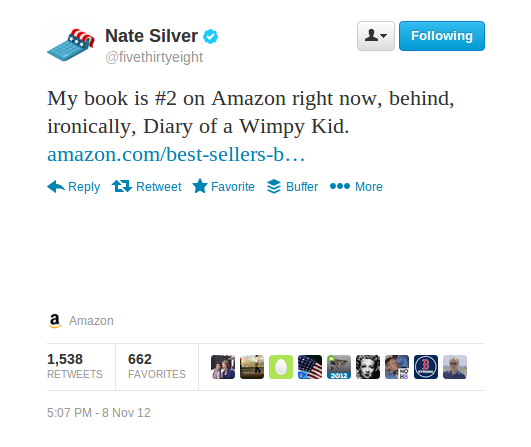
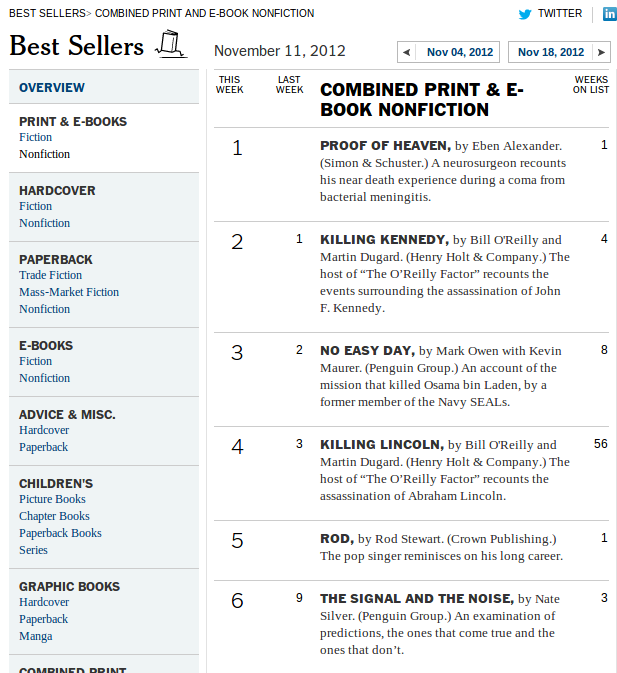
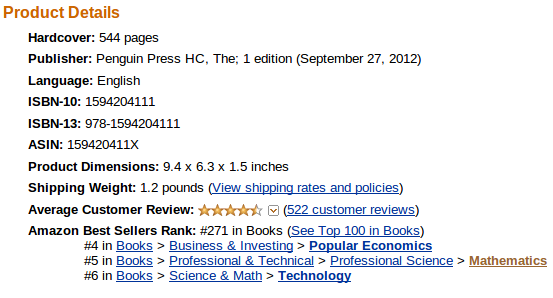
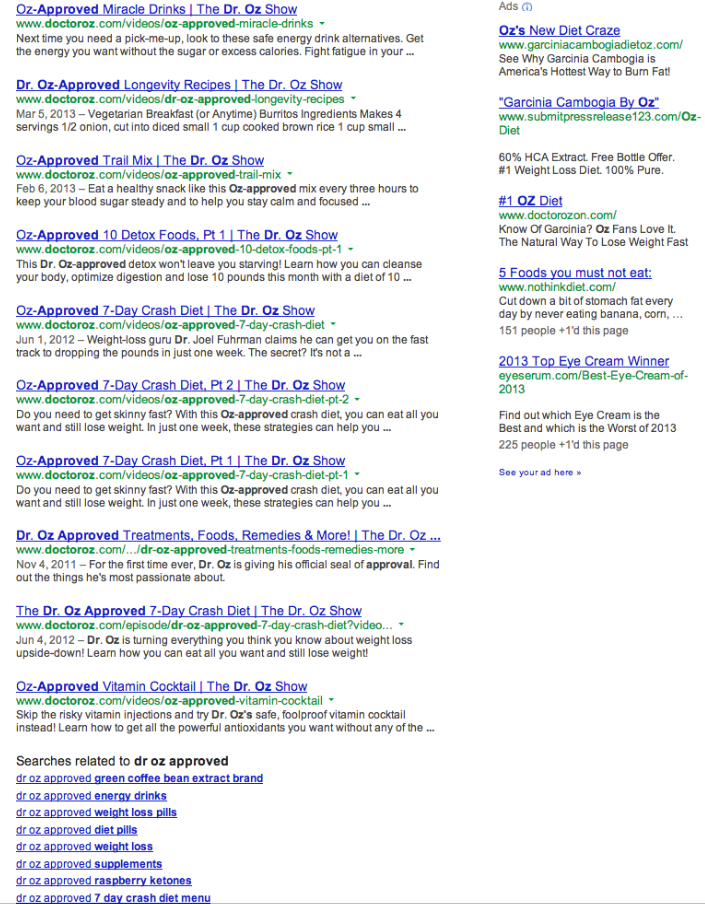




Comments (16)